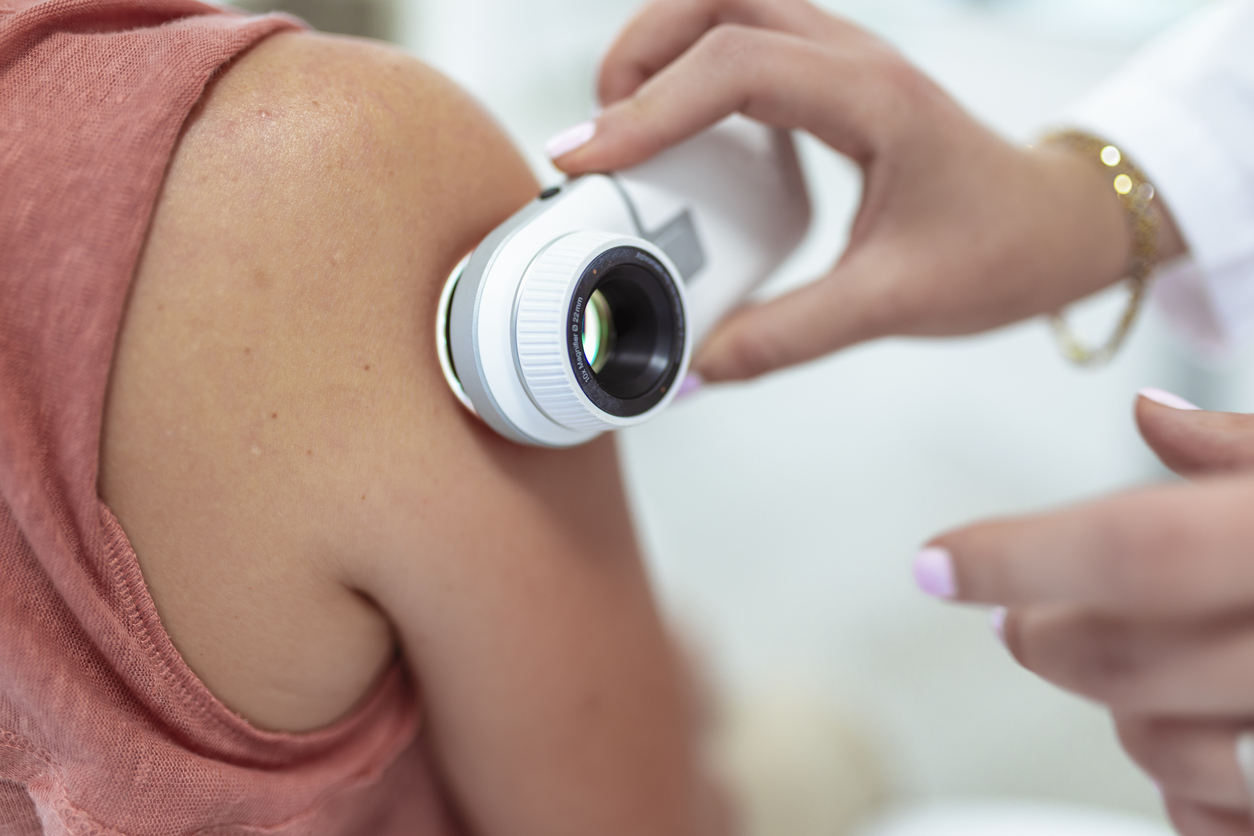We often hear on the news and from doctors that skin cancer is the most prevalent form of cancer in the United States. Many Americans are familiar with the dangers of skin cancer, yet few can distinguish between the various types of skin carcinomas.
In this blog, we’ll delve into the three most common forms—basal cell carcinoma, squamous cell carcinoma, and the rarer Merkel cell carcinoma—while providing insights into their causes, treatments, and prevalence.
Understanding Skin Carcinomas: A Guide from The Skin MD in Chicago
As summer comes to a close, it’s the perfect time to prioritize carcinoma awareness and skin health. After months of sun exposure from activities like beach trips and park visits, the fading of your summer tan can make it easier to spot potentially problematic growths on your skin.
While this year’s sunburn may not manifest immediate issues, the effects of cumulative sun damage from previous years can lead to serious concerns.
What are Skin Carcinomas?
Carcinomas arise from skin cells when genetic mutations transform healthy cells into cancerous ones. Often, UV exposure can cause these mutations in DNA. The mutated cells continue to multiply, invading surrounding tissues and potentially spreading to other parts of the body.
Understanding the specific types of carcinomas is essential for effective prevention and treatment.
1. Basal Cell Carcinoma
What It Is: Basal cell carcinoma (BCC) is the most common skin cancer in the U.S. It originates in the basal cells—the cells that generate new skin cells as old ones die. BCC typically appears as a translucent bump or a sore that fails to heal.
Causes: The primary culprit behind BCC is prolonged exposure to ultraviolet (UV) radiation from sunlight or tanning beds. While most cases occur on sun-exposed areas like the face and neck, other factors can also contribute to its development.
Treatment Options:
- Surgical Excision: Removal of the cancerous lesion along with a margin of healthy skin.
- Mohs Surgery: An advanced technique where layers of skin are removed and examined until no cancer cells remain. This method is particularly effective for lesions on the face or those at high risk of recurrence.
- Topical Treatments: For superficial BCC, some medications can be applied directly to the skin.
2. Squamous Cell Carcinoma
What It Is: Squamous cell carcinoma (SCC) develops from squamous cells, which comprise the outer layer of the skin. It often starts as a firm, red nodule or a flat sore that may bleed or crust over.
Causes: Like BCC, excessive UV exposure is the leading cause of SCC. However, it can also occur in sun-protected areas, particularly in individuals with weakened immune systems.
Treatment Options:
Treatment largely depends on the size and location of the cancer.
- Minor Surgery: For small lesions, minor surgeries can effectively remove the cancer.
- Topical Chemotherapy: A topical solution may be effective for superficial SCC.
- Laser Therapy & Cryotherapy: Both options destroy cancerous cells while preserving surrounding tissue.
3. Merkel Cell Carcinoma
What It Is: Merkel cell carcinoma (MCC) is a rare but aggressive skin cancer that often appears as a flesh-colored or bluish-red nodule, primarily on the face, neck, or head.
Causes: Unlike BCC and SCC, the cause of MCC is not entirely understood, but long-term sun exposure and a weakened immune system significantly increase risk factors. Recent findings suggest that Merkel cell polyomavirus, a common virus, may also play a role in its development.
Treatment Options:
Given its propensity for rapid growth and spread, MCC treatment typically involves multiple types of surgeries and therapies.
- Surgical Removal: This includes excising the tumor along with surrounding healthy tissue.
- Mohs Surgery: Employed for careful removal with minimal impact on surrounding skin.
- Radiation Therapy: Often used post-surgery to eliminate any remaining cells.
- Immunotherapy: Targeting the body’s immune response to fight the cancer, especially in advanced cases.
Stay Vigilant Year-Round with Regular Skin Checks
As the days grow shorter after a sun-filled summer, it’s crucial to remember the importance of skin health. Regular skin checks, protective measures against UV exposure, and prompt consultations with a dermatologist at the first sign of unusual skin changes can make a significant difference.
Learn the ABCDEs of self-skin checks and book your annual appointment with the expert team of dermatologists at Skin MD in Chicago, IL.
Make Early Detection and Treatment a Priority
The Medical Expenditure Panel Survey estimates that around 6.1 million adults are treated for basal and squamous cell carcinomas each year. With efficient treatment strategies from experienced professionals, the prognosis for these cancers is typically positive.
If you or a loved one has been diagnosed with skin cancer, swift and comprehensive treatment is essential. At Skin MD Dermatology, our dual board-certified surgeons offer cutting-edge treatment options, including Mohs surgery, which boasts the highest cure rates for BCC and SCC. Get in touch with us today to schedule a consultation by calling us at (708) 636-3767 or contacting us online.



